
Extreme Swimming The Ama Divers Pearl of Japan Swimcore
In these photos from 1937, pearl-divers pose on the beach in the Miye Prefecture in Western Japan. Japanese photographer Iwase Yoshiyuki (first photo) picked up his Kodak camera and took these wonderful pictures of the mermaids who dived for oysters, abalone, seaweed and turban shells. In years to come, the wet suit would replace the birthday suit.

AMA collection International women’s day, Japanese pearls, Woman’s day
Ama pearl divers represent one of Japan's less-known and yet fascinating cultures. Ama (海女 in Japanese), literally translates to 'woman of the sea' and has been recorded as far back as 750 in the oldest Japanese poetry collection, the Man'yoshu . Original text by Elizabeth Lim (Asian Diver Issue 02/2020 Vol. 158)

Japan's Ama Divers A Sacred Tradition
Ama (海女, "sea women") are Japanese divers famous for collecting pearls, though traditionally their main catch is seafood. [1] The vast majority of ama are women. Terminology There are several sea occupations that are pronounced "ama" and several words that refer to sea occupation. ama (海女) - a female sea-diving fisherperson
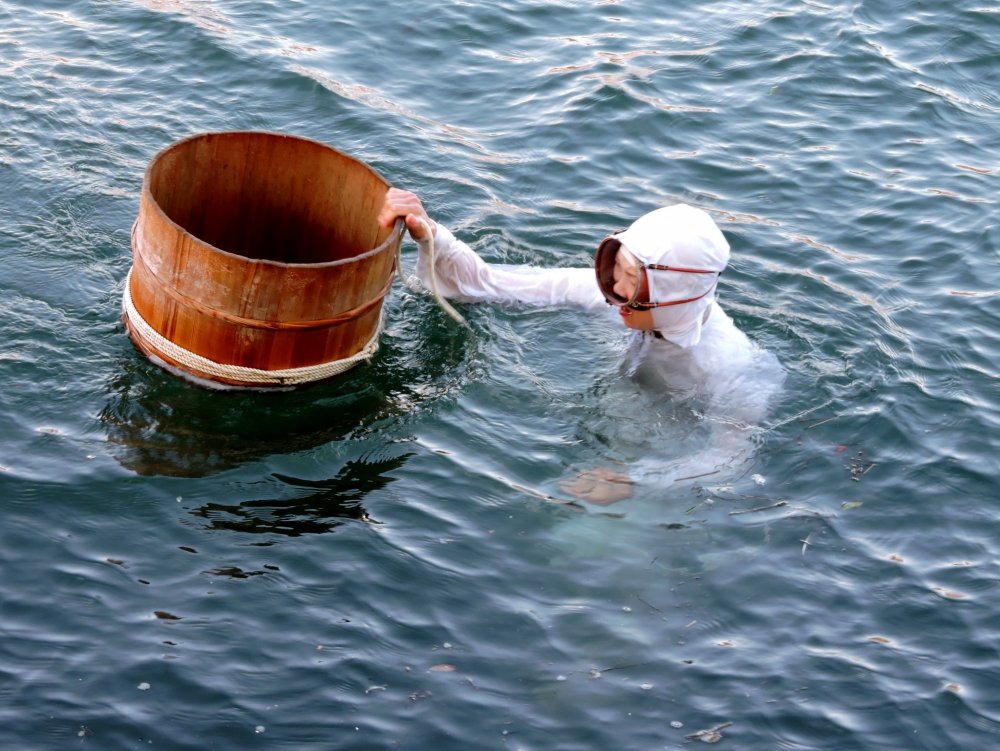
The Breathhold of Japan's Pearl Diving Mermaids Underwater360
Ama, the Pearl Divers Ama, the Pearl Divers Toba English 5 hour Add to favorites The ama are more than just snorkelers, they are the custodians of a tradition that goes back thousands of years. Come and meet them in Toba, where the tradition of the pearl fisherwomen is still alive. Women of the sea
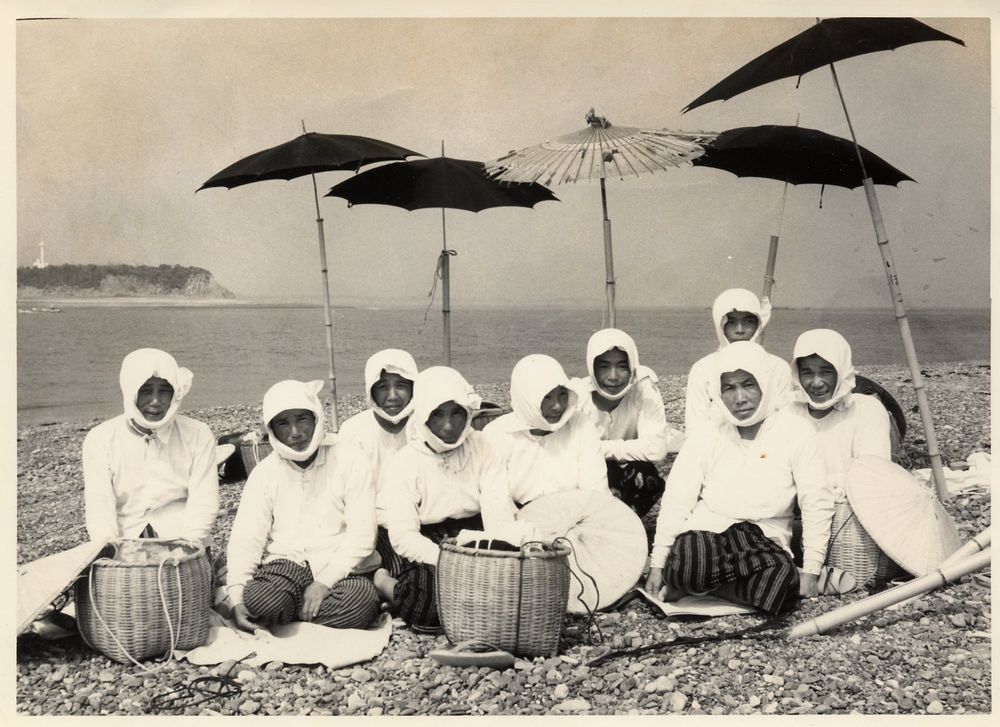
The Breathhold of Japan's Pearl Diving Mermaids Underwater360
Mikimoto employed Ama divers to care for his cultivated pearls on Mikimoto Pearl Island, close to Toba City. This in turn has kept the tradition of Ama diving alive, although minor changes did occur. Mikimoto Ama wore full-body, white diving costumes and used a wooden barrel as a buoy.

"Life of Ama divers" series by Yoshiyuki Iwase Japanese pearls, Japanese history, Japanese culture
Japanese Ama pearl divers off Mikimoto Pearl Island, in Ise Bay, offshore Toba, Mie Prefecture, Japan, where the women dive for cultured pearl. Japanese skin diver or 'Ama' surfaces for air near the small fishing village of Onjuku in the Chiba prefecture of Japan, August 1959.
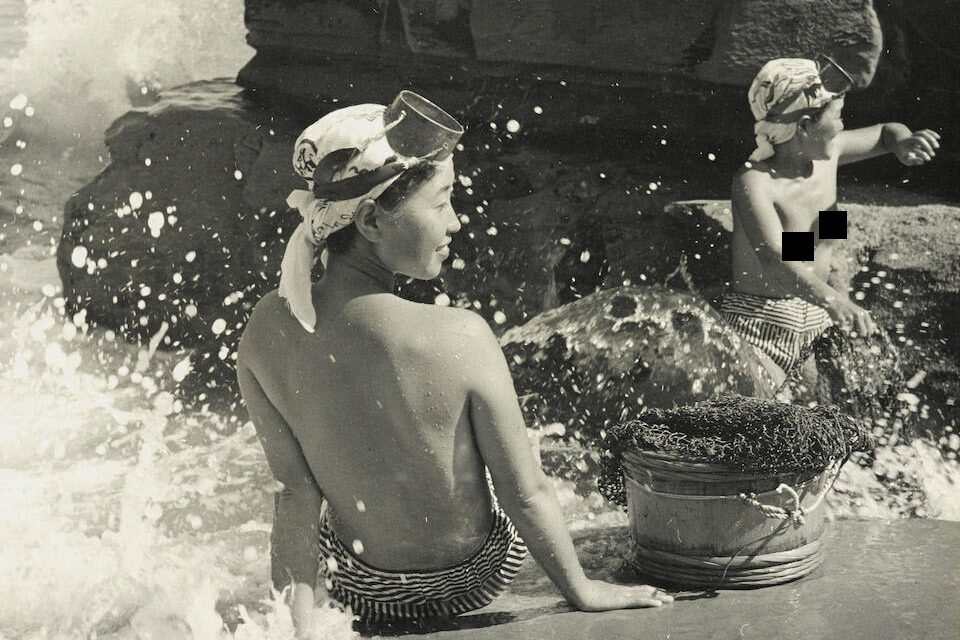
The Breathhold of Japan's Pearl Diving Mermaids Underwater360
Pearl hunting, also known as pearling, is the activity of recovering pearls from wild molluscs, usually oysters or mussels, in the sea or freshwater. Pearl hunting was prevalent in the Persian Gulf region and Japan for thousands of years.
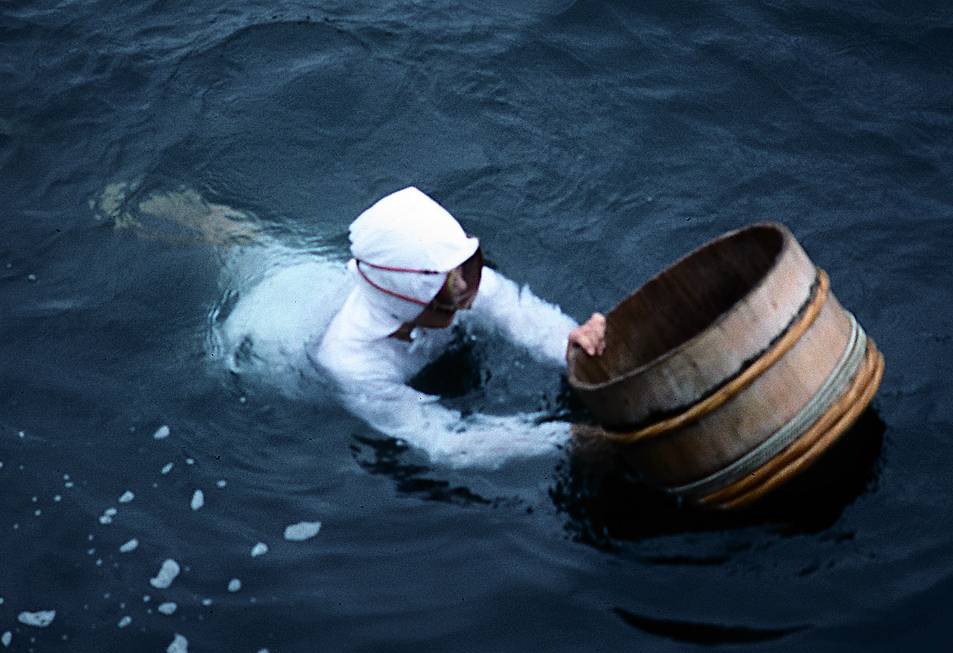
PEARLS DIVERS AMA
Ama pearl diving is deeply rooted in Japanese culture, and its influence extends beyond the coastal regions where it originated. The practice has become synonymous with Japan's identity and heritage, captivating the imagination of people worldwide. While Ama diving is concentrated in specific areas such as the Ise-Shima region and Toba City.

Japan’s last female ‘Ama’ pearldivers BBC Travel
Japanese women have been fishing in the sea for 2,000 years and have been part of the Japanese cultural heritage for quite some time as well. Known now as Am.
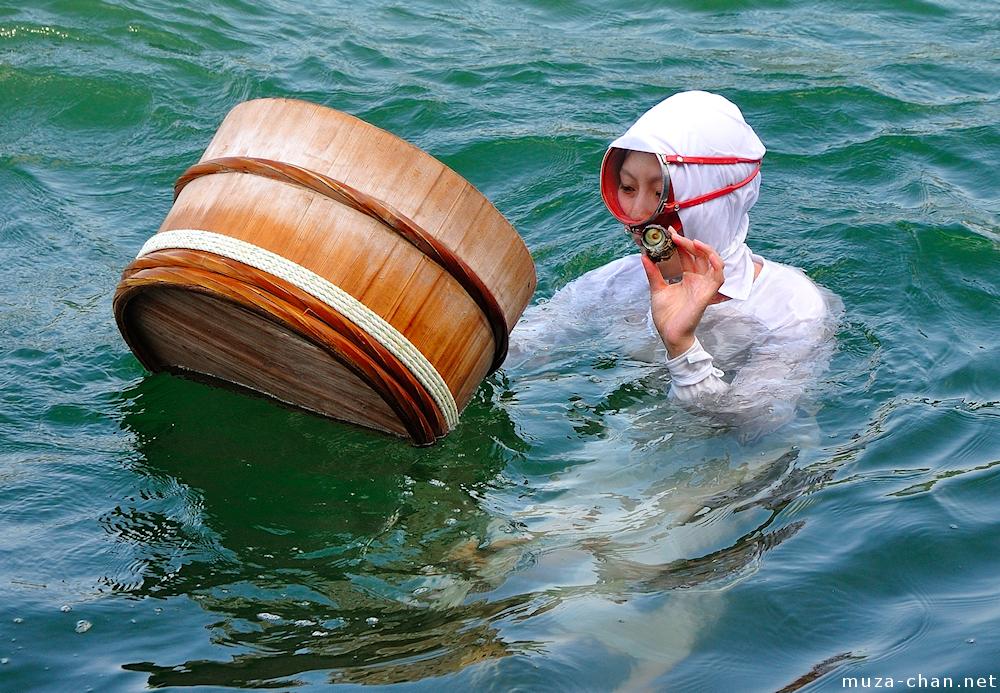
Ama women diver
Mikimoto used Ama divers to look after his cultivated pearls on Mikimoto Pearl Island, near Toba city. This business was the main reason for the strong association between Ama and pearl diving among foreign observers that continues to this day.
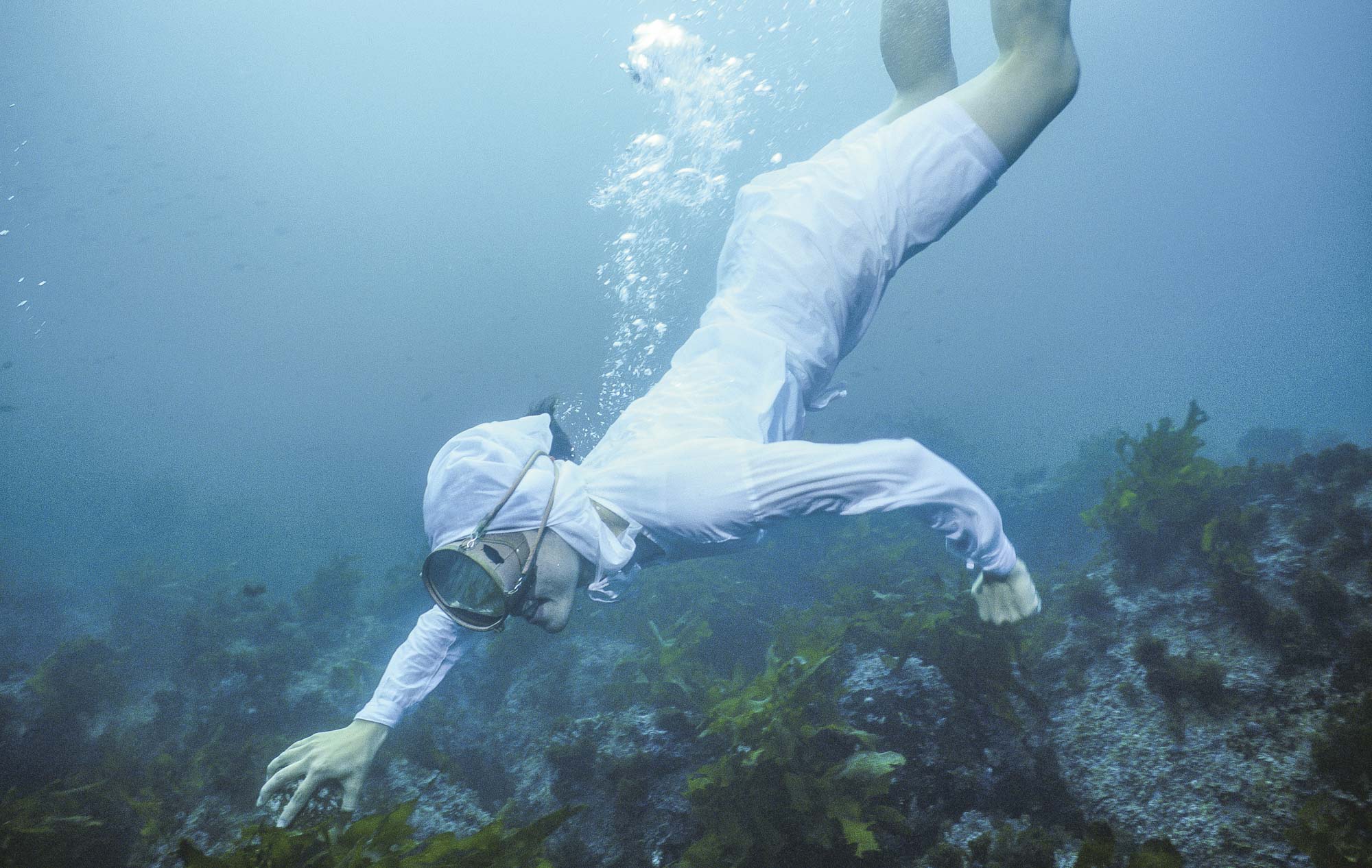
The amazing story of Japan's freediving fisherwomen Discovery
Posted on July 27, 2023. In coastal Japan, ama pearl divers, remarkable women, have practiced their craft for over two millennia. These fearless sea women collect pearls and treasures from ocean depths using exceptional breath-holding abilities. We'll explore ama divers' captivating world, rich history, rigorous training, and cultural legacy.

Extreme Swimming The Ama Divers Pearl of Japan YouTube
The term Ama (海女 in Japanese) literally means 'women of the sea', as women were always the preferred divers in Japan. Since ancient times Ama would free dive into the Pacific to retrieve seaweed, abalone, shellfish, and sometimes pearls, wearing nothing but a loincloth and goggles.

AmaPearl Divers at Mikimoto Pearl Island YouTube
Meet the ama divers of Ise-Shima, the women preserving Japan's ancient art of sea foraging Numbers of ama, Japan's female divers, have declined in recent years as generations left to pursue careers in big cities. The Ise-Shima peninsula, in southern Mie Prefecture, remains one of the best places to learn all about this age-old practice.

Ama Pearl Divers Mikimoto Pearl Island TokyoStreetView
One of the lesser-known but fascinating parts of Japanese culture is that of the Ama pearl divers. Ama (海女 in Japanese), literally means 'woman of the sea' and is recorded as early as 750 in the oldest Japanese anthology of poetry, the Man'yoshu.
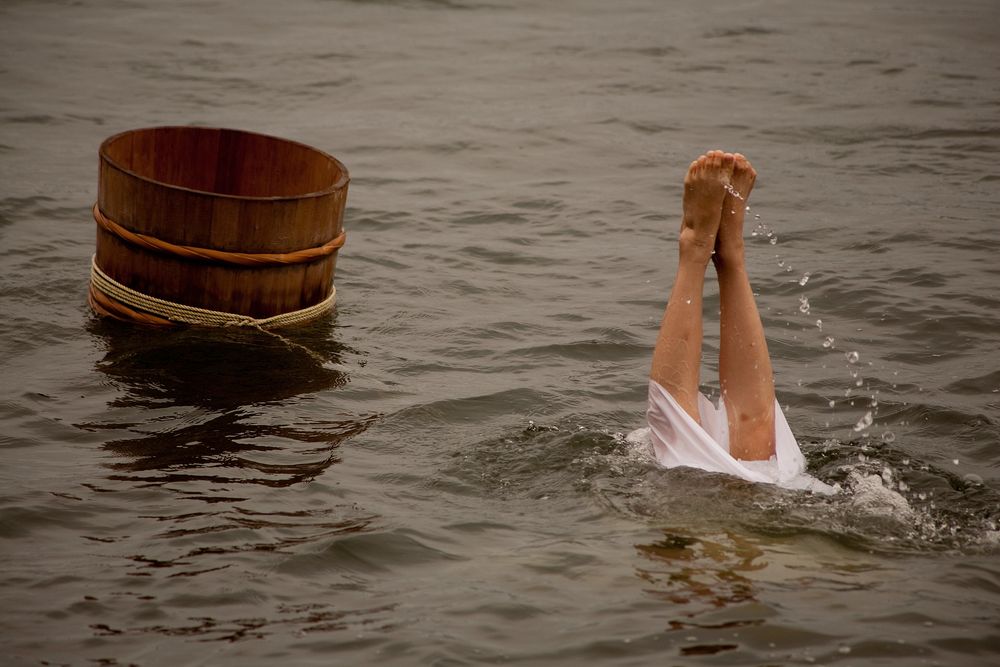
Ama The Freediving Fisherwomen of Japan Amusing
Japan is home to the world's most famous and sophisticated Mikimoto pearls. The indigenous craft began its first pearl cultivation in 1893 at a pearl oyster farm at the Shinmei inlet on Ago Bay in Mie Prefecture.The founder, Kokichi Mikimoto (1858-1954), was fascinated by pearl divers in Ise when he was a young man and dreamed of further perfecting the art of pearl culture.
Ama woman (pearl diver) getting caught in a wave, Japan 1955. Photo by Yoshiyuki Iwase
Ama divers are extraordinary freestyle divers who dive for fish, seaweed and pearls.